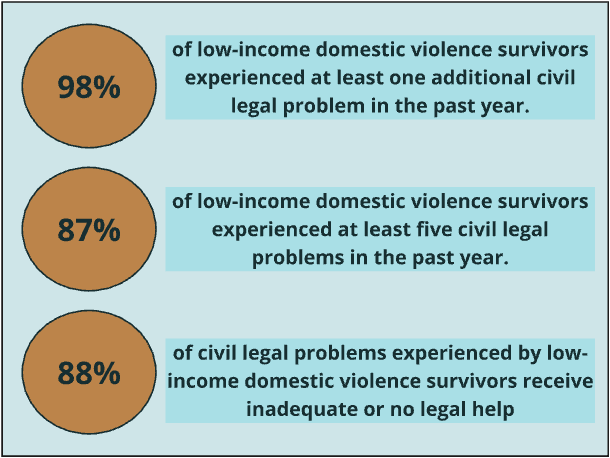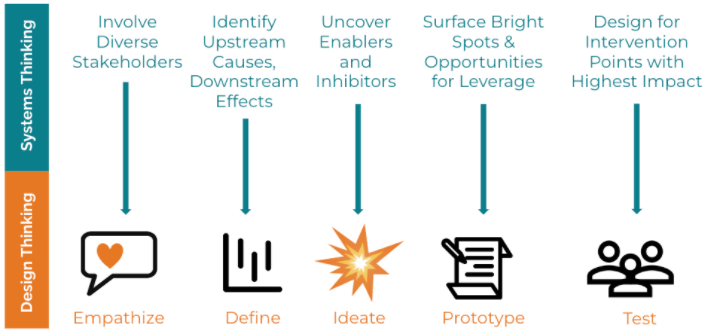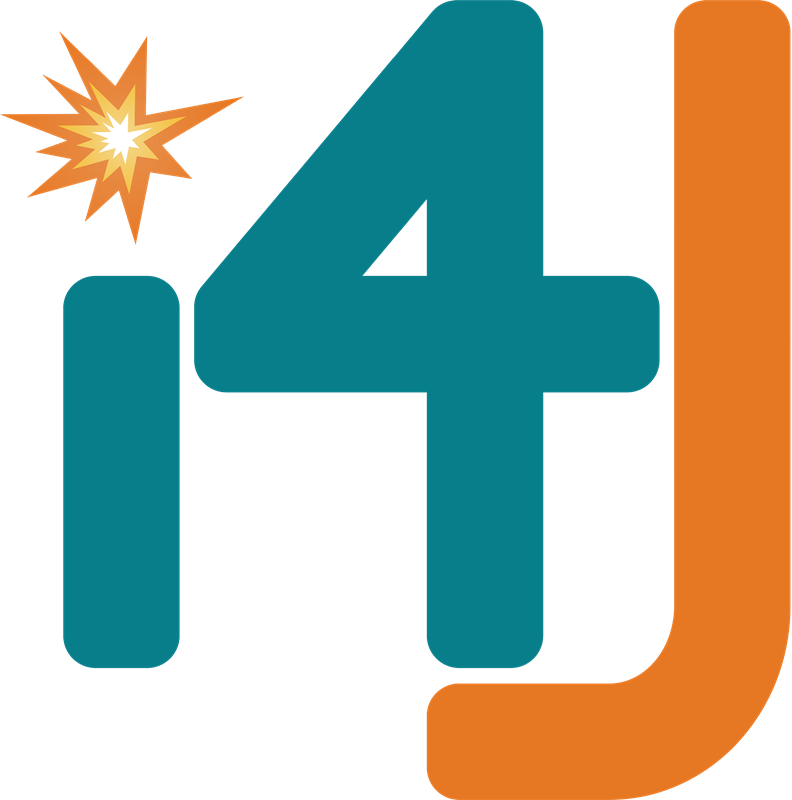What is Unauthorized Practice of Law (UPL) Reform?
Unauthorized practice of law restrictions prohibit non-licensed individuals from offering legal services. UPL reform refers to the re-regulation of the practice of law, allowing trained non-lawyers to offer legal services, including legal advice, to community members.
The Justice Crisis for DV Survivors

Who is this toolkit for?
This toolkit is designed for anyone who wants to build the bench of community members who can know and use the law to advance equal justice. Grounded in the issue of domestic violence as a case study, this toolkit is particularly a resource for advocates, organization leaders, lawyers, and survivors interested in advancing UPL reform in their state.
Our Research Methodology

How to use this toolkit
This Toolkit was designed for anyone who wants to build the bench of community members who can know and use the law to advance equal justice. Grounded in the issue of domestic violence as a case study, the Toolkit is particularly a resource for advocates, organization leaders, lawyers, and survivors interested in advancing UPL reform in their state. This Toolkit can be used to encourage UPL reform in any jurisdiction.
- First, the UPL database can be used to identify the UPL restriction in a specific jurisdiction that would need to be amended in order to encourage reform.
- Second, the Toolkit can be used to understand who the decision-makers are with the power to further UPL reform in a jurisdiction.
- Third, data from Research Question 1, Research Question 2, and Research Question 3 can be used to tell the story about why a specific community would benefit from implementing UPL reform.
- Finally, data from Research Question 4 and Research Question 5 can be used to illustrate how a specific organization’s existing training compares to training at other organizations, what training for upskilling advocates might include, and what best practices might guide new training.
Learn More About This Toolkit
Data-Driven Decision-Making in UPL Reform: Explore our Five Research Questions
Nationally, what challenges do domestic violence advocates face in assisting survivors (nationally) when they only offer legal information and not advice?
Do domestic violence advocates and organizations believe that having the ability to provide limited-scope legal advice would be beneficial for them and the survivors they assist?
What civil legal needs do domestic violence advocates most want / need to advise DV survivors about?
What additional legal training would domestic violence advocates require to feel prepared to offer limited-scope legal advice?
What do subject matter experts consider the best practices for lay and licensed legal advocacy for DV survivors, in areas such as training/certification, supervision/mentorship, and professional responsibility?
UPL Map
Quick glimpse into each state’s UPL restrictions. Explore our UPL Database to discover your state’s current policy on UPL.
Quotes from the Community
“It would be so great if we could get more individualized training and…be competent in the legal assistance that we’re providing.”
– DV Advocate
“I think because the resources are so limited, it [advocates providing limited-scope legal advice] would obviously…expand access for people.”
– Organization Leadership
“The lack of access to justice is harming more people than any bad scenario that I can imagine if advocates were given, carefully tailored, regulated access to and ability to provide advice.”
– DV Attorney
“[Being able to give legal advice] would be very beneficial because I’m in court every day, and every day something arises.”
– DV Advocate
